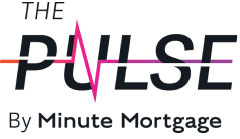14 Mortgage and Refinance Terms You Should Know
Starting the search for your first home? Thinking of refinancing to a better rate or a helpful cash-out? One tough part of home buying or refinancing can be wrapping your head around several unfamiliar terms: Who or what is escrow and why do they have my money? What’s the difference between pre-approval and actual approval?
Fret not — Minute Mortgage is here to help. While this is not an exhaustive list of unfamiliar words you may come across, these are the top 14 terms every homebuyer and those refinancing should know.
Amortization
Amortization refers to the process of paying off debt over time in regular installments of interest and principal sufficient to repay the loan in full by its maturity date.
When making mortgage payments, some of that money will go toward the principal and some will go toward the interest. The amount allocated toward interest and principal changes monthly, as more money goes toward the principal and less toward interest over time. Though that allocation changes, your monthly payment stays the same.
For example: Let’s say you got a fixed-rate 30-year loan and your monthly payments came out to $1,667. One monthly payment in the first year of your mortgage may allocate $1,300 to interest and $357 to the principal. In year 10 of the loan, one monthly payment could be $1,050 to interest and $607 to the principal. By the very end of the 30-year loan, your monthly payments would be down to a couple of hundred dollars toward interest and the bulk toward principal.
Annual Percentage Rate (APR)
The APR is the more effective rate to consider when comparing loans. The APR includes not only the interest expense on the loan but also all fees and other costs involved in procuring the loan.
The APR is expressed as a percent. This is different than the note rate, which is the rate your monthly payments are based on. The APR is an important number to check as an inviting interest rate can become unappealing after weighing in fees and other costs.
Break-Even Point
This is the point at which your savings from a lower mortgage rate exceed the costs of refinancing. A good rule of thumb is to not refinance unless you plan to stay in your home long enough to hit the break-even point.
Closing Costs and Prepaids
As the name implies, closing costs are the amount it costs to close the deal. It includes costs such as title insurance, lender charges, escrow fees, real estate commissions, recording fees, and more.
Prepaids are expenses you’ll have to pay at closing (before they’re actually due, hence the name) to obtain your mortgage. Prepaid expenses can include your first year of homeowners insurance, private mortgage insurance (PMI), hazard insurance, a portion of property taxes, and other required fees.
Though both are paid at closing, the key difference between the two is that closing costs are directly related to the real estate transaction while prepaids are related to the home itself. Be sure to consider both of these when budgeting for your new home, and shop around for the best rates as they can vary by vendor.
Escrow and Earnest Money
Escrow is a neutral third party that holds on to money for buyers and sellers.
Earnest money is a deposit that lets the seller know you’re serious about buying their home.
The earnest money doesn’t go straight to the seller, though; it’s held in escrow. Escrow also comes into play during other parts of the home buying process, such as during closing or when your lender pays your PITI (principal, interest, taxes, and insurance) expenses.
Equity and Cash-Out Refinances
Equity is the difference between the current value of your home and how much you owe. So if your home is worth $200,000 and you owe $125,000, you have $75,000 equity in your home.
A popular way to tap into your home’s equity is with a cash-out refinance. This type of refinancing replaces your current mortgage with a new one that’s worth more than what you owe on the house. You then pocket the difference and can use the money toward home improvements, paying off bills, or other needs.
Cash-out amounts are limited to about 80%-90% of your home’s equity, so don’t plan on being able to get the full amount.
Debt-to-Income Ratio
The debt-to-income ratio (DTI) is the amount of your current monthly debt divided by your total gross monthly income. It’s an important number to consider as you apply for a loan as it is used by lenders to assess risk. The higher your debt-to-income ratio, the tougher it’s going to be to get approved for a loan, as those with a high DTI ratio are seen as a risk. Most lenders will want to see you at 36% or less DTI with 45% being the highest most will consider, though exceptions may be made in certain cases.
Origination Fees
Origination fees are charged by the lender to cover the costs of processing your application and generally include underwriting and funding the loan, an application fee, and more.
We’re not about charging unnecessary fees here at Minute Mortgage, though. With the exception of rare cases, we won’t charge origination fees.
Discount Points
You can reduce your mortgage rate by paying more upfront in the form of fees known as discount points. In other words, discount points are used to buy down the interest rate of the loan. One point costs 1% of the loan amount and each point will typically buy your rate down by a quarter of a percentage point.
For example: If you were approved for a loan at a rate of 4.5%, you could buy it down to 4.25% by purchasing one discount point. This is essentially prepaying interest, and spending several thousand dollars in discount points upfront can potentially save you tens of thousands of dollars over the life of your mortgage.

Most lenders will want to see you at 36% or less DTI with 45% being the highest most will consider, though exceptions may be made in certain cases.
Mortgage Insurance
If you’re not able to place a down payment of at least 20 percent, your lender may require you to purchase private mortgage insurance (PMI) so they’re protected if you default on your loan. The amount you’ll have to pay for mortgage insurance is dependent on the amount of your down payment and your credit score. The cost is typically added to your monthly payment.
Pre-Approval
It’s good to get this step taken care of early in the process. It’s beneficial for both you and your real estate agent to know how much home you can afford before your home search starts. In fact, many agents won’t agree to show you homes until they know the amount you’re pre-approved for.
Your loan specialist is going to need many documents and will pull your credit report to check your score and look for any red flags or issues that could hinder your loan process.
At Minute Mortgage, we use state-of-the-art technology to simplify the preapproval process. We require fewer documents than traditional lenders and everything can all be easily submitted via our website or mobile app. Just snap a pic and submit. We’re cool like that.
Now that you’re an expert on these 14 important home loan terms, here’s the exam part of this blog. Okay, we’re kidding. But know that when you’re ready to move forward, so are we! When you visit our website, you can create an account and connect with a representative who will assist with the next steps. If you’re not exactly prepared to sign on any dotted lines, that’s ok, too! Our staff of experts will address your questions and concerns and get you one step closer to your dream home. Contact us today!


 10 Minute read
10 Minute read



